
I start to write about António in the waning moon, when it empties itself from the round shape it had a few days ago. He learned early about constellations and speaks of the sky as if he lived in it daily. He looks at it over and over again, with a real look, or through his imagination. The brightness floods his eyes, like the moon that fills the night with light. Supernovae, red giants, or yellow dwarfs fit in his universe. Yes, we are all familiar with the different stars in the sky that have different maturities. If he had not chosen Medicine, today he would certainly be studying the reasons for the existence of stars even more in-depth.
Passionate about reading, his world is not enough for him, he looks for other temporal places, or those that make the History of the World, or the cosmic transformations that allowed us to get used to this small world, as António calls it.
I ask him to mention the most remarkable moment in history for him. After thinking carefully and with a curious expression on his face, he surrenders to the evidence that it is not possible to choose a single period. The choices then come firmly and sensibly, from someone who knows what he defends. The assassination of Julius Caesar and the invasion of Poland in World War II are the two time frames. But do you know the reason for these choices? Wait, don't get lost before I tell you who he is.
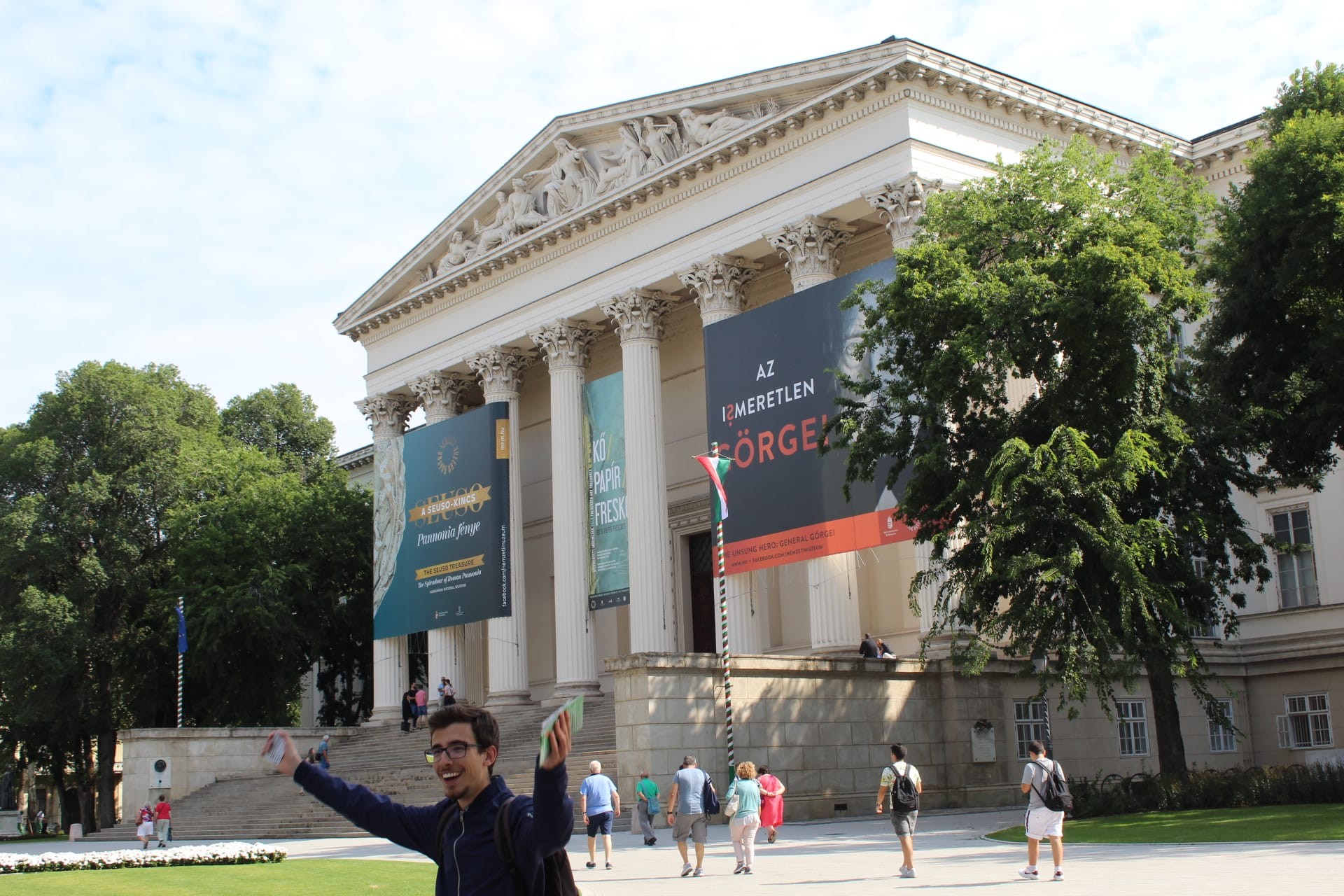
Without having any accent, the truth is that António Velha is from Évora. Proud of the city that mixes history with the natural landscape, he paints with his far-reaching gaze an Évora that is now green, but immediately warns that his ideal time is the spring when the city is painted with the red of poppies.
A single child, he says with natural simplicity that he always lived with his parents "in the small apartment". Moving from one city to another, like Lisbon, made him try not to lose a "support network" and this motivated him in year 1 of the IMDM to go home almost every weekend. Changing environment was initially tough, which he does not hide, and aware of the costs inherent in this new phase, it was a relief to have two more friends from Évora with whom he would share an apartment and all expenses.
Still, almost always like all other cases, he felt that "growing up" implied flying with only his wings, cutting the natural childhood strands to his parents.
He has been at the AEFML since 2018, where he started in the Department of Pedagogy and Medical Education. He stayed there for the next academic year, assuming a coordination mandate. He was also in the Department of Educational Policy, which, according to him, are "two very different worlds, which, although being very close, are very disparate". The explanation does not even need to be considered, if we talk about the educational aspect, "politics is not everything, but it touches everything", since Medical Education is what drives him, "not only exposes our study and teaching, it allows greater development as human beings".
Always very connected to partnership actions between students and the Faculty, Solvin 'it was his first project. A project which he coordinated, Solvin 'it is of special esteem for him, because "it lives for and with the students, since they conduct peer teaching among themselves". It is this spirit of mutual assistance, and of better conditions for all, that made António Velha pursue his journey in the mediation with the Faculty.
His path easily explains why today he is the new President of the Students Association of the Faculty of Medicine of Lisbon, AEFML.
He will hardly forget the moment when he saw the Aula Magna empty, as he had never seen it before. The 20th of October is a special occasion for him, as it was the his start of his term of office as President of the AEFML.
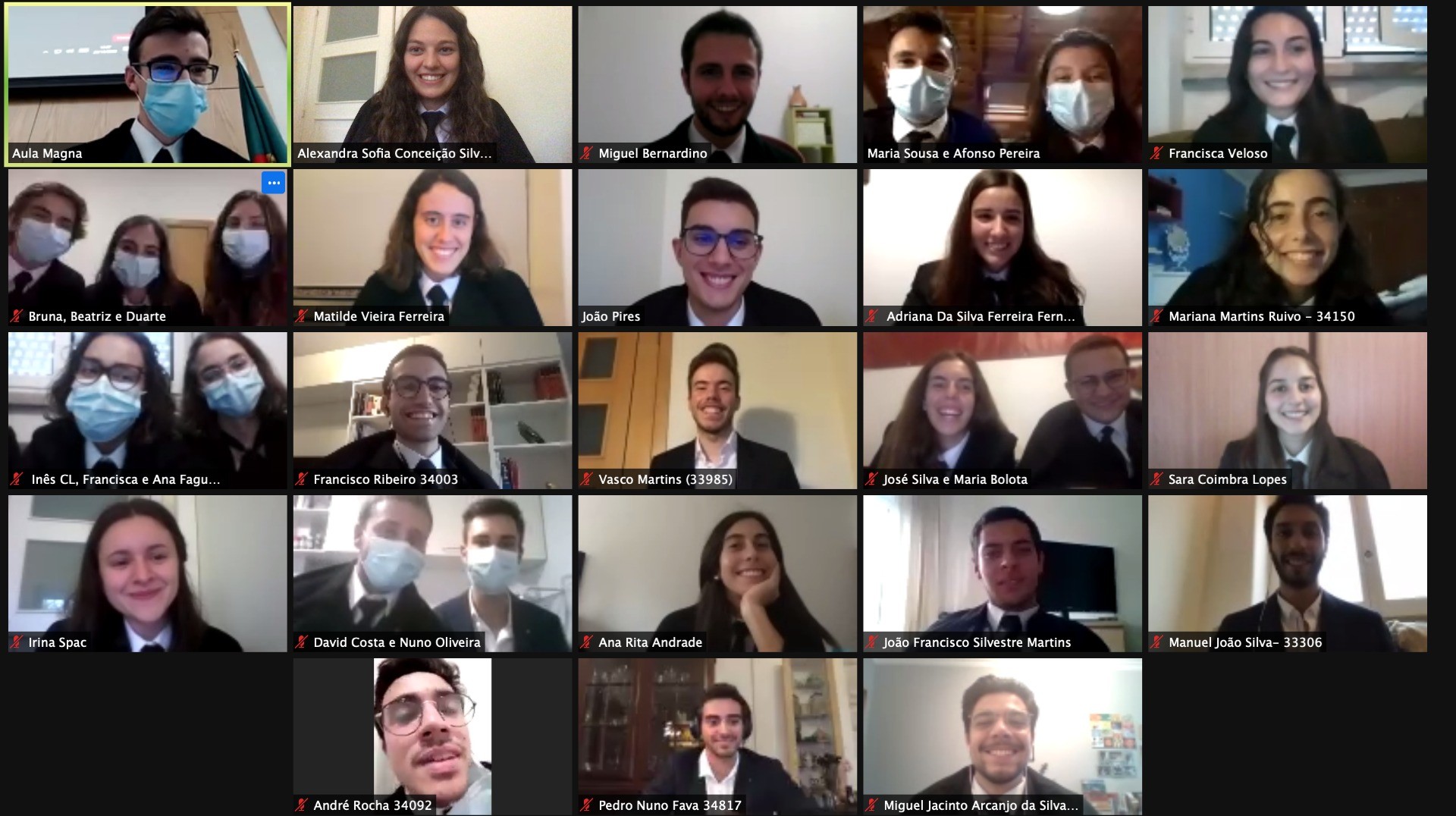
"It was the passing of the torch", he tells me, with no race played at the same time between two parallel tracks. It was a track won without rivals.
About the AEFML, he now says that it is a great symphony. He is also a music lover and apprentice pianist for a few years. He fills his soul with melody. Passionate about Russian Romantic composers like Sergei Rachmaninov and Tchaikovsky, he mentions another more contemporary composers, Debussy and his "Clair de Lune". Always with his particles on the moon, he returns to earth to describe to me what teamwork will be like in the Association, "each one will play his note, but the harmony is always there, whoever plays it".
Polite and discreet, his stance must not be confused with fragility or lack of assertiveness. António works discreetly behind the scenes, without being the protagonist. He hands this role over to others, even though he has orchestrated everything so that it ends well. And despite having already taken the stage, he does not feel the need for applause.
This is the António I met in the last few months.
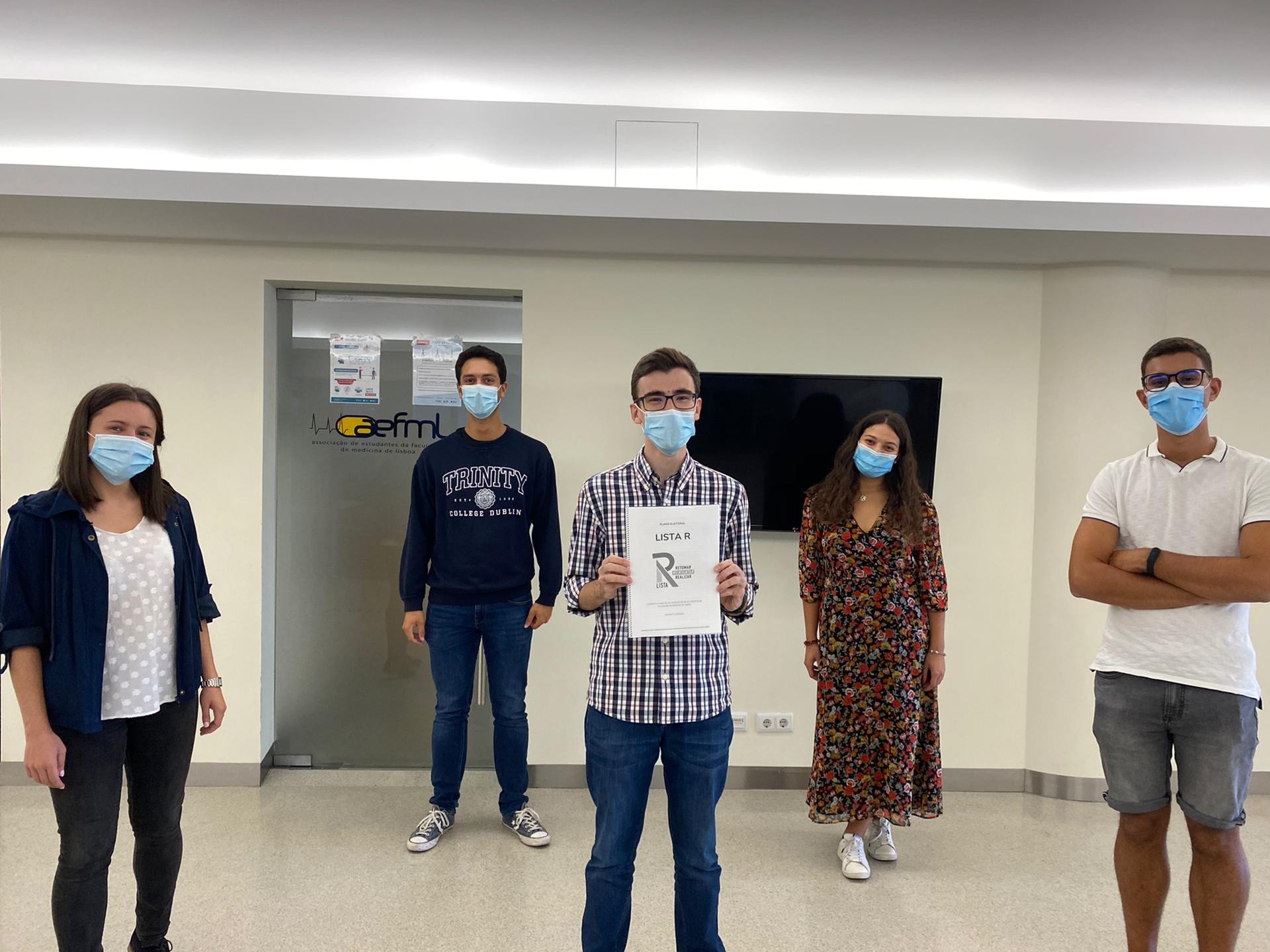
Abstention is normally high in your elections. Is the campaign without competition a "stimulus" for people not to vote massively?
António Velha: I would not say lack of adherence. But this year was not the most representative due to the circumstances in which we find ourselves (COVID-19). I think it is not lack of interest from the students, just look at their involvement in all the activities that are carried out, my colleagues are very involved in everything that is done. (He is silent and thinks for a while). Although they all know that there is no competition between lists, the vote always has an associated meaning that is always a provision of trust and not so much a denial or opposition. I see it as a support, a reinforcement.
There is always a sense of continuity, even between terms of office. We cannot sense contrasting positions. Is there no real competition and comparison between you?
António Velha: I would say that the overwhelming majority does not have that spirit of competition. I don't see these manifestations of competition on a daily basis, not least because I think that our profession is not very conducive to these things, that is, much of what I see in medical practice requires a lot of empathy and great professionalism among peers. One feels that throughout the degree. Therefore, it is something that is present not only in the academic experience, but especially in our life and relationships. And it's not just in the AEFML, our interactions as students are very positive and reflect solidarity.

When did you start thinking about running for president of the AEFML?
António Velha: It was an idea that was slowly matured, it didn't just come from a feeling or a thought, it happened over time. I don't like things happening like supernova supergiant stars, that is, things with a lot of fuel and very big, but that then live very little time on the cosmological scale, explode as supernovae and only leave behind clouds of debris and gases. I prefer things like red giant stars, main sequence stars, or a yellow dwarf star, like the sun. In other words, they are all smaller stars that use their fuel over many billions of years, allowing planets like ours to have life. Now making the analogy to my candidacy, it gradually gained fuel and with each thing we build projects that bring along another project, with a new sensation, thought and feeling.
Where did you get this passion to look at the sky from?
António Velha: It was always like that. Since I was a kid, I had books on planets and space at home and I spent hours looking at the images and browsing through them. I remember that it was my parents who offered me these books and I was always fascinated to look at what was outside this world. That is why, from a very early age, I got used to seeing Man and our own Planet as something very small, very important, but on a very small spatial scale. That always gave me an idea that was both terrifying and cosy.
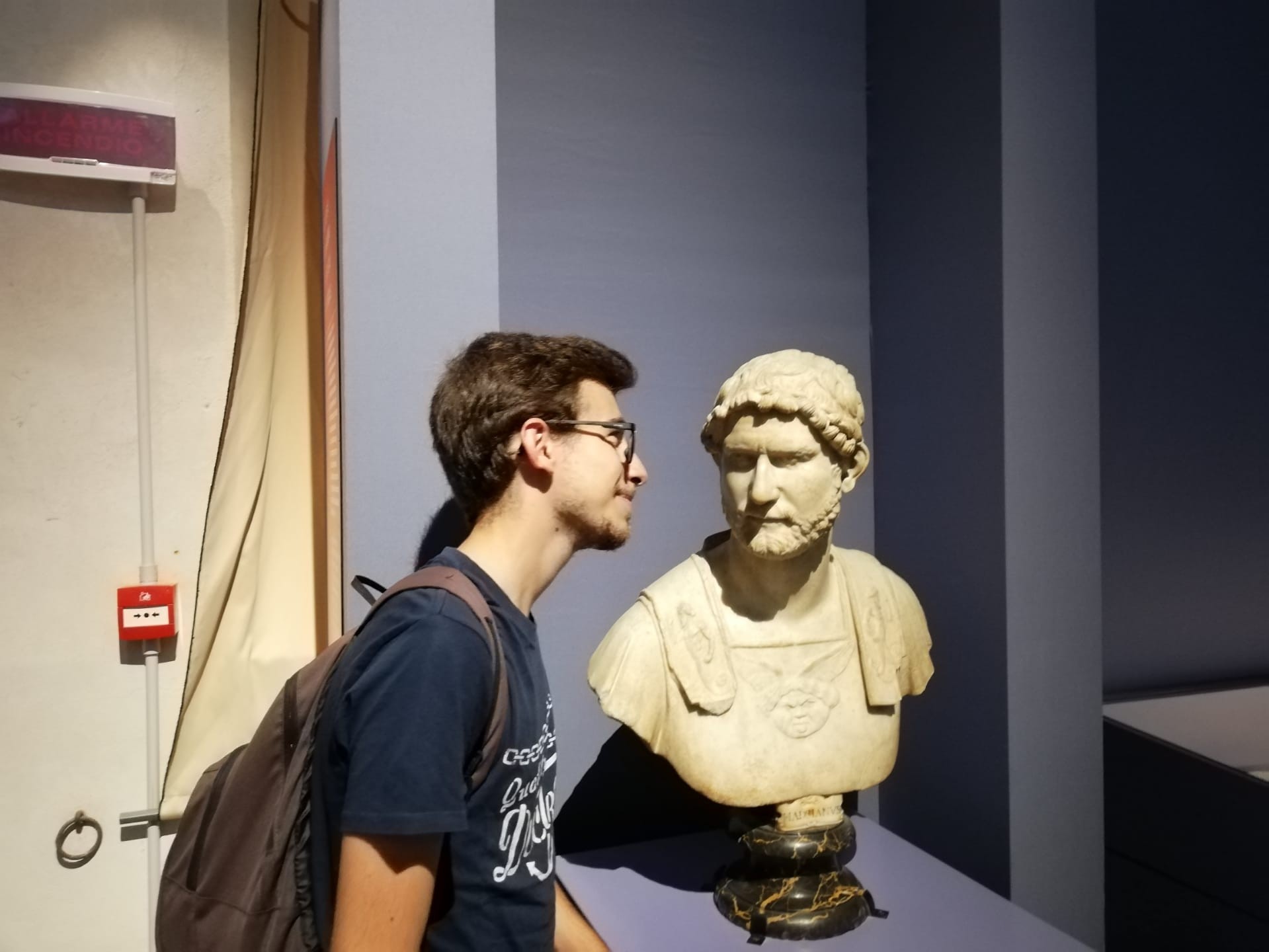
I am intrigued and curious about the historical periods that you highlighted as the most significant for you. The death of Julius Caesar and the invasion of Poland, in the 2nd World War. Can you explain those options?
António Velha: They are not the most significant periods, but they are the ones that attract me the most and that I like to explore. One because it has all the fascination that was the Empire, the Roman Republic. The other because the entire history of the 20th century profoundly influences what our world is today. Studying history allows us to understand where we came from and why we got here.
Let’s talk about territories closer to us... How was the struggle of a person from Alentejo on his arrival in Lisbon, who had never lived in a city other than Évora?
António Velha: It was strong. Intense. I feel that this is the case for all displaced students who are not used to big cities. At first, it's a little scary because of the size and because when we get here we don't know anyone. It is therefore necessary to have some adaptation time and I immediately highlight the Mentoring group that supports the displaced students so much.
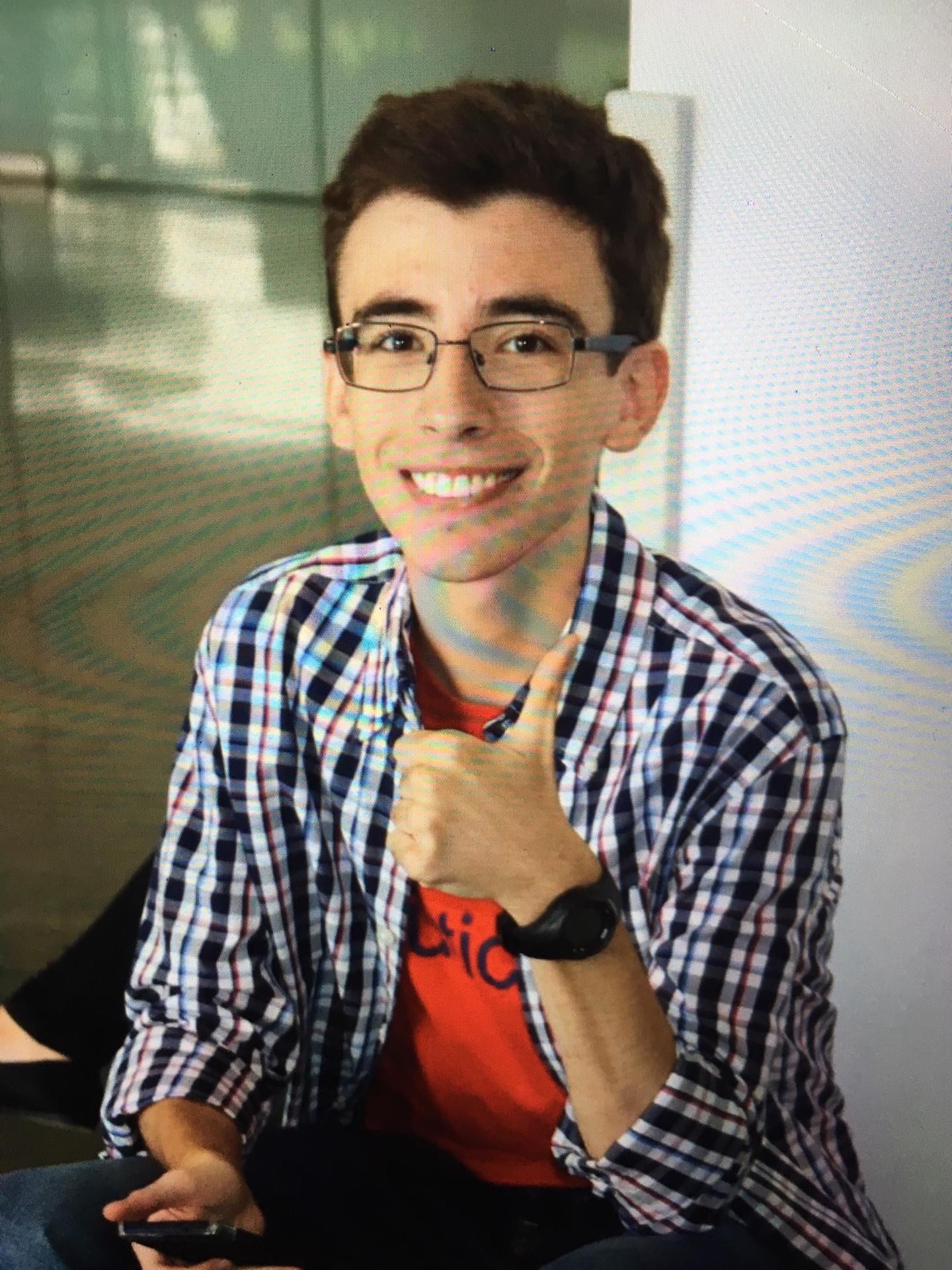
Did it help you?
António Velha: Quite a lot! I remember enrolment day, they were right there to help us meet the first people. I don't remember anything else from that day, but I remember the Mentoring group and the AEFML stands. Over time, the process of gaining some degree of autonomy and emancipation from parents was natural. We start to feel that we want to be more independent and this makes us stop going home so often. This process is natural, just think that out of a total of 7 days, 5 we spend in Lisbon. Suddenly, Lisbon started to give us roots.
Does this exchange of cities give you more emotional structure, more “baggage” than to those who have always lived in Lisbon?
António Velha: I would say that it is not necessary to "throw people to the wolves", so that they gain more character or a stronger shell. It is important that people have support structures that enable them to integrate as healthily as possible. So, as people become comfortable, they will end up creating their own structure.
We know how difficult it is to bear the cost of living for a new student who arrives in Lisbon. Does the AEFML have a strategy to guarantee some type of support?
António Velha: Yes. We do this on two levels. One with the Social Responsibility and Welfare Department, where we create welfare grants. The applications will be launched very soon. And then we have our activity in the Department of Educational Policy, via the Academic Federation of Lisbon, an organ that we integrate and that has a federative structure and does a lot of advocacy work, putting pressure on the decision-making bodies. The housing issue is really one of the great challenges of the moment.
What are your pillars on which you will cement your presidency?
António Velha: All the pillars that the AEFML has already built and that are visible in the various departments will be continued, but now taking into account adaptation to the pandemic. It is a work that we have done with great diligence and dedication to see if we can carry out everything for which AEFML is already recognized, but with a certain degree of adaptability.
In parallel, we want to continue to represent the students, saying to the decision-making bodies, "these are our needs, these are our proposals".
And what do you most want to defend when it comes to your rights?
António Velha: Much of what we want to defend, not only with Medical and Nutrition students, but with students in general, is about the challenges of this new academic year. We are not only talking about welfare and how it has been impacted, but we are also talking about pedagogical conditions in all faculties. It is also important to highlight the students' mental health, which was even more affected/ enhanced by the pandemic. Then at a more local level, it is important to always maintain a close relationship with the ruling bodies of the Faculty.
We will focus more on students from FMUL and Medicine and not on the whole. Are there any other points you want to secure and keep on the agenda?
António Velha: There is work that comes from the past that needs to be continued and then more recent issues. In the case of continuity, it concerns the reform of clinical education, which was postponed last year and must be addressed again; then the assessment processes at pre-clinical level, which is important to ensure that they are carried out successfully; also take into account the various pedagogical issues, that is, the assessment process, the classes and clinical teaching and the way everything is being monitored.
It is not easy to want to start a mandate and team coordination when there is no script for anything. When you run for this position you knew what awaited you, because you were already experiencing the pandemic. Does it require courage, or not?
António Velha: A little bit, yes. I thought about this a lot. I had some internal issues, but I never hesitated. It is very important for everyone to be clear about their present weaknesses and strengths. And we have many weaknesses now. But while aware of this, we must try to make the best decisions under the circumstances that are possible. We still have plans outlined for what is to come, we are aware of what our worst-case scenario is and this ends up giving us some security in what we think and are trying to do. And it is important to say that we have each other in the team and, even though we may not be together physically, our connection is indeed strong. We are all together facing this challenge and this creates a spirit of closeness and mutual help. I am learning a lot from all the members of the team and I like to think that it brings us closer together. (He was about to start a sentence, but hesitated and stopped).
You were going to add something else, António, what was it?
António Velha: No... nothing.
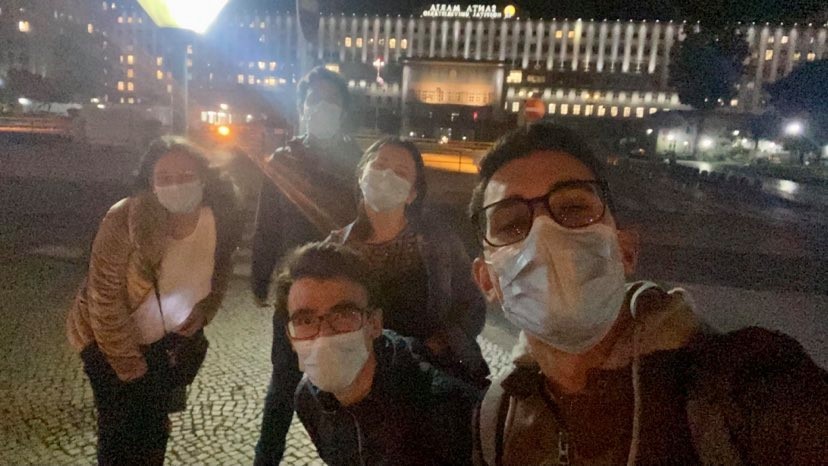
You don’t want to say it? What were you thinking about?
António Velha: I was going to say that we adapted our team building moments to be done remotely. These are different moments, which help us to be well individually, but also well with each other. In a team there must be serious moments and others to laugh, it creates closeness. (Hesitates a lot and measures exactly every word) It strengthens our friendship...
Art is no joke, quite the contrary, but it does bring some lightness to the soul. In the last Cultural Soiree, in 2019, you participated as an actor, playing the devil…
António Velha: This Aad Eternum Soiree made an analogy of hell. There were several allegorical characters to the 7 mortal sins and I, as a devil, started and ended the show. In the end I gathered all the characters that were very dispersed, each of them going on about their own lives committing their sins. By bringing them together, I was creating a moment of sharing and understanding. It was a very "out of the box" experience for me. I had never done drama, but I liked playing the devil!
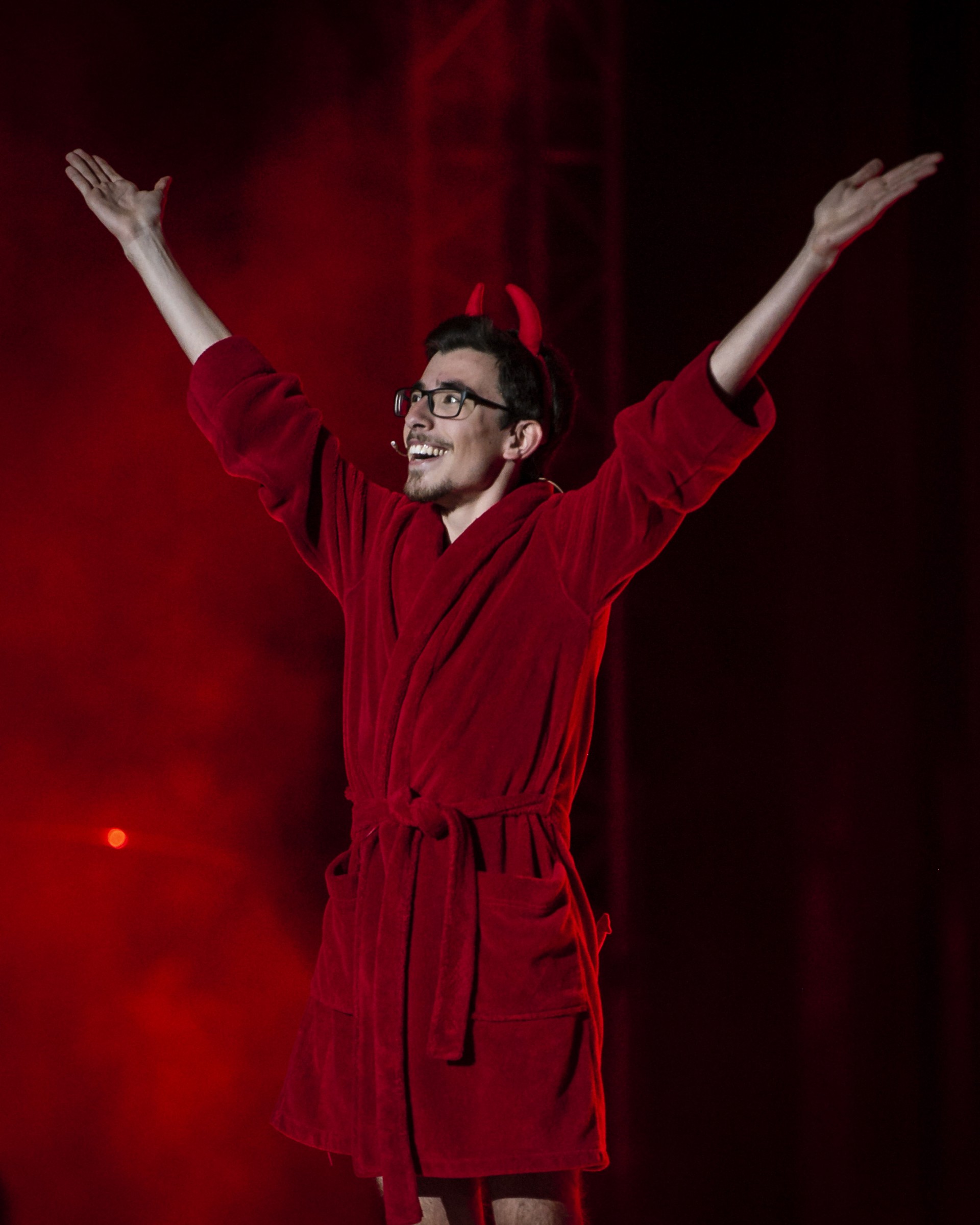
Did you feel comfortable about it?
António Velha: Yes.
But it's curious because you are very reserved as a person.
António Velha: Yes and no.
So does it take time to earn your trust?
António Velha: Not trust... I'm not afraid to make myself known, but I like to feel that the other person makes himself known. There must be sharing, an exchange. In the case of the Soiree, I did not make myself known, but the devil. It was an experience of abstraction, because I put myself in the position of another person and took on this other person as if it were myself, giving my imprint a little.
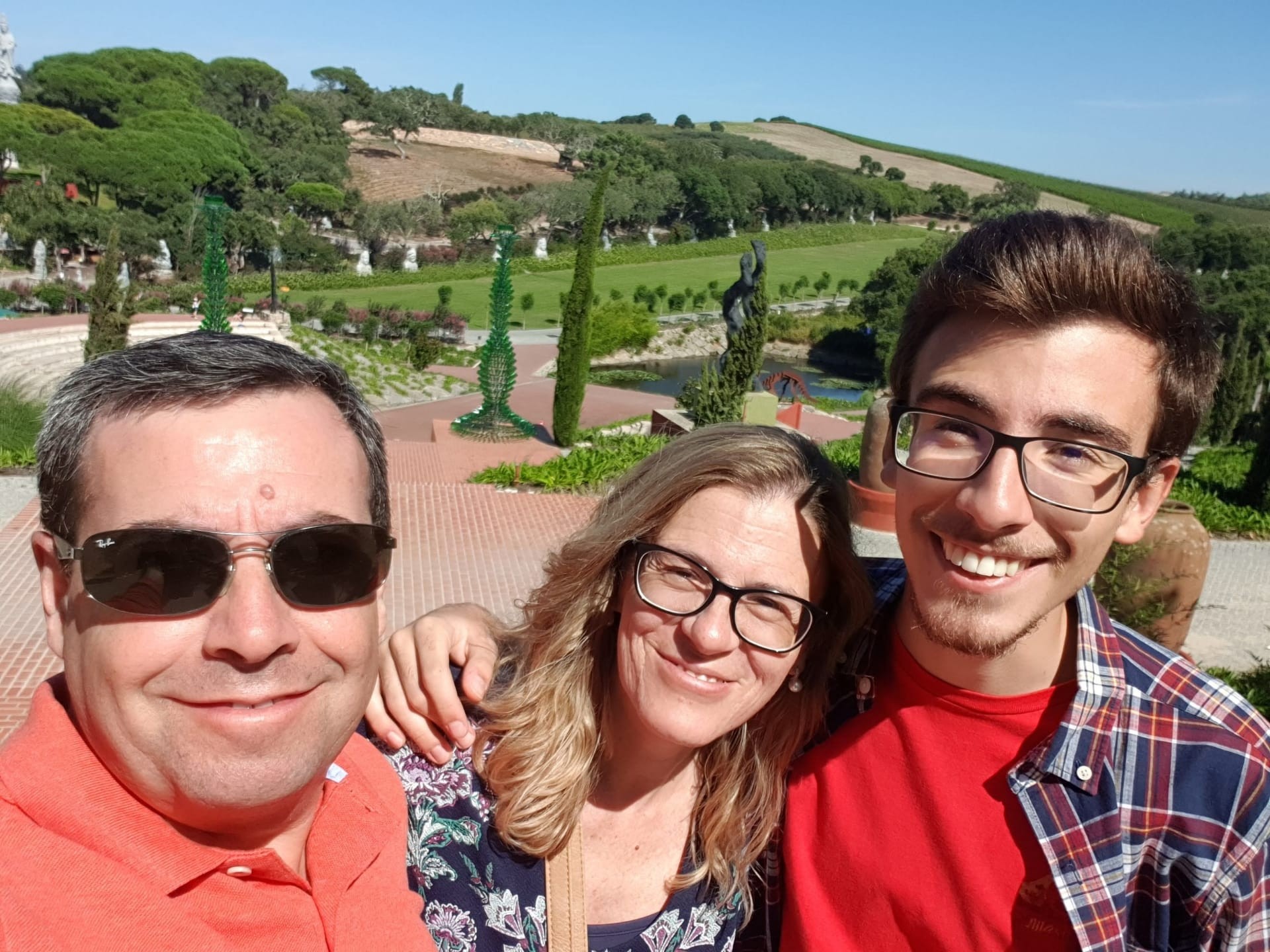
Listening to you reminds me of your other colleagues and your vast range of skills that you are accumulating and which cover areas as diverse as sports, music, or another expression of art. How is it that you, being from such different places in the country, children of different parents, are all so designed to have these qualities?
António Velha: Um... (Thinking) It's a good question... I don't see myself as special. I have always been curious about the world and always felt that I didn't need know too much of something in particular, when I can explore several things at the same time. If I can explore multiple worlds, get to know other people, and let them know me. So, why not?
Aren't you afraid of change, or discovery? Don't you fear the consequences of the search for the new?
António Velha: I am and I do. But it is natural. It is this fear, this butterfly in the stomach feeling that tells us that something new is coming and that makes it so much more valuable when we discover it, and therefore when we overcome ourselves.
When do you feel that? When did a situation like this happen lately?
António Velha: At the Swearing-in ceremony, a little bit, of course. (Smiles) But, also when I left the scouts recently, just before the ceremony. I could not take on two management positions and I had to choose to leave the scouts. In fact, all big decisions, or big moments, cause this butterfly feeling (laughs and then thinks) After all, more than deciding well, it is important to decide something.
Even if it goes wrong?
António Velha: Going wrong is a learning experience. I really like a phrase that says "we don't learn despite our mistakes, we learn thanks to them". I do not mean that we have to make a lot of mistakes to learn, but we do not have to be afraid of the mistake for the mistake itself. We have to be conscious and thoughtful, but also decisive when it is necessary, even if the outcome is not certain.
This academic year you will have a lot of exposure. Is it important what others might think of you?
António Velha: I worry about what happens to others and what we do for them. My main concern is to ensure that all can clarify their doubts and that their needs are met. And when it doesn't happen, they can have a word on the subject. About me, as a person, everyone can think what they want, but about the work that is conducted, that worries me, hence the importance of receiving feedback
You succeeded as President to a previous one, as in all cases. Does taking up this place that was occupied until recently by another person have weight or is it something that doesn't even exist for you?
António Velha: This weight exists as long as the chair is there and will always exist, through different Presidents. But the chair is there, it was already there and it will continue to be there after me, this chair is irrevocable. We build everything we can over the foundations of those who come before us. Everything we build, we do it thinking that it is forever and it will be seen as we are now seeing what has already come from the past. It is reductive to think of the idea of "I will sit in a chair that is still warm from those who have been here before", it is more important to think of the foundations of this construction as a whole to which we can contribute.
A year from now if we talk again, what would you like to tell us as "duty accomplished"?
António Velha: (He is silent for a long time) I will quote a phrase I heard from Professor António Barbosa, in his Last Lesson, which is deeply ingrained in me: "I didn't do everything I wanted, but I wanted everything I did". I want to tell you that we gave our best for our students, despite the circumstances that surround us all.
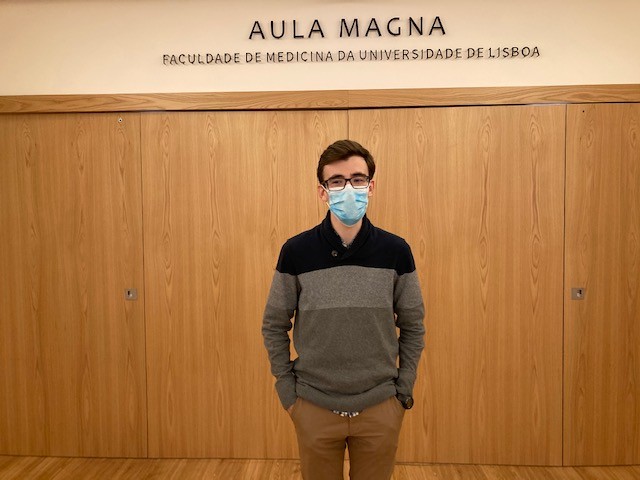
António Velha has already had his first meeting with the Director of the Faculty of Medicine, Professor Fausto J. Pinto. He does not make much of it, knowing that relationships are conquered and work is done over time. Once again he proves that he behaves like the red giant stars and not the supergiant and supernovae.
Ironically, as if it had also been written for a play, António, like the devil character, now begins a story, gathers dispersed people, each one with his task and will also end the term of office a year from now.
We will look at the sky that António will populate and we hope to see him endure, with maturity, as one of his big stars.
Joana Sousa
Editorial Team


